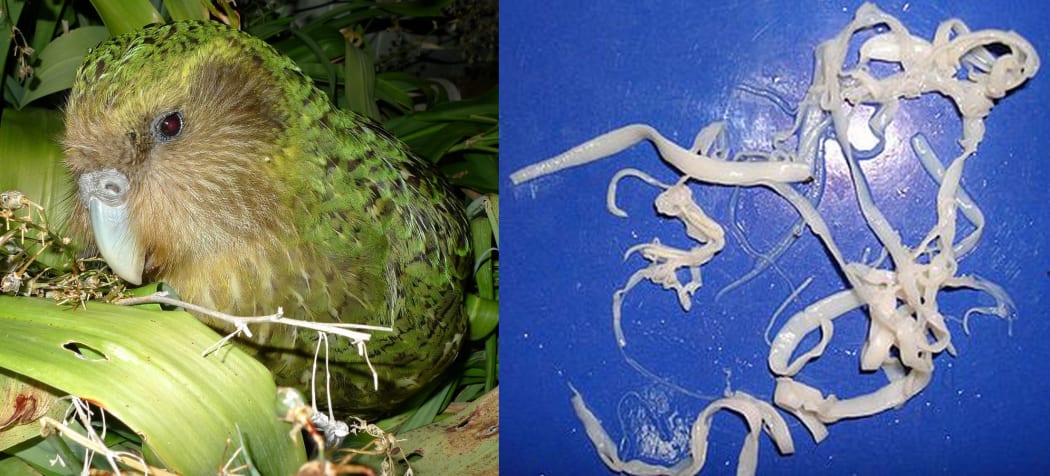“What we’re doing is taking the ‘hygiene hypothesis’ and applying it to conservation” ~ Hamish Spencer, Zoology Department, University of Otago

Should we be putting as much effort into saving parasites as we do into saving their endangered hosts? Have already lost the kakapo's tapeworm ... ? Photo: CC BY 2.0 Department of Conservation CC BY 3.0 K. Lalchhandama / Science Vision
Parasites get a lot of bad press. However, two evolutionary biologists argue that parasites may be beneficial to the health of their host, and that they should be preserved not just for their own sake, but for the sake of their host.
Hamish Spencer from the University of Otago says this is most important for endangered species, as ‘parasitic exposure might be crucial to the host’s development of a fully functional immune system and hence to the survival of the host.’
Hamish gives the example of tapeworms and the threatened kakapo in New Zealand. A few years ago, he says, two kakapo were found to have tapeworms. They were given veterinary treatment to rid them of the parasites, and no tapeworms have been seen since. It is possible that the tapeworm species is now extinct. No one knows what this loss might mean for the health and immune system of its host bird, or indeed for the wider environment that the bird and tapeworm are part of.
Hamish Spencer and co-author Marlene Zuk’s argument is a new application of the hygiene hypothesis, which argues that early infections stimulate an organism’s immune system and ensure it doesn’t over-react when it is later exposed to allergens and microbes.
The paper “For host’s sake: the pluses of parasite preservation’ was published in Trends in Ecology and Evolution.

